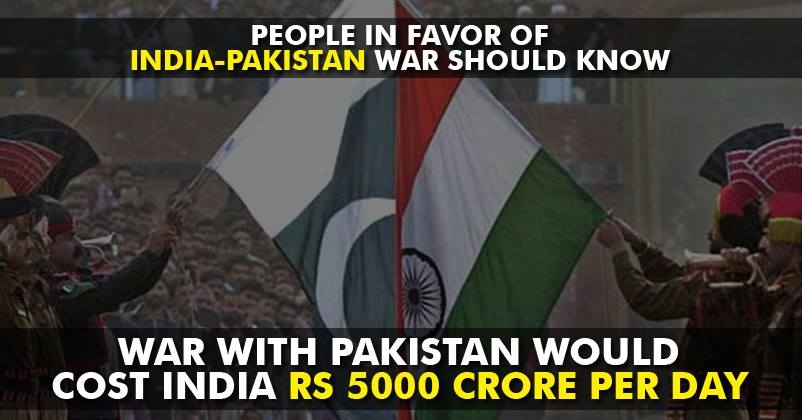The militant attack on an army base in Uri, Jammu and Kashmir has claimed the lives of eighteen soldiers. 17 soldiers died on Sunday, while one more critically injured soldier succumbed to his injuries on Monday. The entire nation was angered after India’s eighteen brave heart soldiers had to sacrifice their lives. The four cowardly terrorists responsible for the attack were killed by the Indian army. India has directly blamed the attack on Pakistan.

The nuclear powered neighbours India and Pakistan could be on course for a dramatic showdown after a dramatic escalation in tensions between the two military powers. But let us realize that having a war with Pakistan right now would be a bad move. The first casualty of an all-out war would be India’s fastest growing economy in the world. The war would push us 30 years back.
We are moving towards a double digit growth rate!

As per the Niti Aayog projections, we are progressing at 8 percent GDP in 2016-2017, we could add another 2 percent by 2019. India could convert its $2 trillion real economy and its $2 trillion stock market capitalization for the next two decades to double figures. But only if there’s no war, so there would be no effects of war on the economy.
If we go to war then our economy would be pushed back by a decade!

Our GDP rates would be affected drastically. In 2016, a per day cost of war would cross Rs 5,000 crore mark. If we consider Kargil, and the operations conducted then, they were estimated to cost between Rs 5000-10,000 crore a week.
A 14-day ‘short war’ today would cost at least Rs 2,50,000 crore, assuming multiple fronts and contingencies, and raise the nation’s fiscal deficit by 50 percent to about Rs 8 lakh crore, up from Rs 5.32 lakh crore in 2015-16.
This war will also have a strong knock-on inflationary effect on the market. It would also affect the stock value trend in FDI/ FII investment. It would also drop the rupee to Rs 100 to the US dollar.
It will demolish Indian economy!
A War will be bad for both the countries. But India has a lot more to lose. We are way ahead of Pakistan, so it will affect us more. The uncertainties of war will drive away potential investors, cause inflation and shortages. In fact, a better strategy would be to have more success, because success is the best revenge: India’s economic rise is the best answer to a Pakistan whose image is that of a terrorism-sponsoring state.
So what do you think guys, should we go to war? Should we take a diplomatic action against Pakistan? Do share your views and opinions in the comments!




